Connect to and manage Azure Database for MySQL in Microsoft Purview
This article outlines how to register a database in Azure Database for MySQL, and how to authenticate and interact with Azure Database for MySQL in Microsoft Purview. For more information about Microsoft Purview, read the introductory article.
Supported capabilities
| Metadata Extraction | Full Scan | Incremental Scan | Scoped Scan | Classification | Labeling | Access Policy | Lineage | Data Sharing | Live view |
|---|---|---|---|---|---|---|---|---|---|
| Yes | Yes | Yes* | Yes | Yes | Yes | No | Limited** | No | No |
* Microsoft Purview relies on UPDATE_TIME metadata from Azure Database for MySQL for incremental scans. In some cases, this field might not persist in the database and a full scan is performed. For more information, see The INFORMATION_SCHEMA TABLES Table for MySQL.
** Lineage is supported if dataset is used as a source/sink in Data Factory Copy activity
Important
Microsoft Purview only supports single server deployment option for Azure Database for MySQL.
Prerequisites
An Azure account with an active subscription. Create an account for free.
An active Microsoft Purview account.
You'll need to be a Data Source Administrator and Data Reader to register a source and manage it in the Microsoft Purview governance portal. See our Microsoft Purview Permissions page for details.
Register
This section describes how to register an Azure Database for MySQL in Microsoft Purview using the Microsoft Purview governance portal.
Authentication for registration
You'll need username and password for the next steps.
Follow the instructions in CREATE DATABASES AND USERS to create a login for your Azure Database for MySQL.
- Navigate to your key vault in the Azure portal
- Select Settings > Secrets
- Select + Generate/Import and enter the Name and Value as the password from your Azure SQL Database
- Select Create to complete
- If your key vault isn't connected to Microsoft Purview yet, you'll need to create a new key vault connection
- Finally, create a new credential of type SQL authentication using the username and password to set up your scan.
Steps to register
To register a new Azure Database for MySQL in Microsoft Purview Unified Catalog, do the following:
Open the Microsoft Purview governance portal by:
- Browsing directly to https://web.purview.azure.com and selecting your Microsoft Purview account.
- Opening the Azure portal, searching for and selecting the Microsoft Purview account. Selecting the the Microsoft Purview governance portal button.
Select Data Map on the left navigation.
Select Register.
On Register sources, select Azure Database for MySQL. Select Continue.
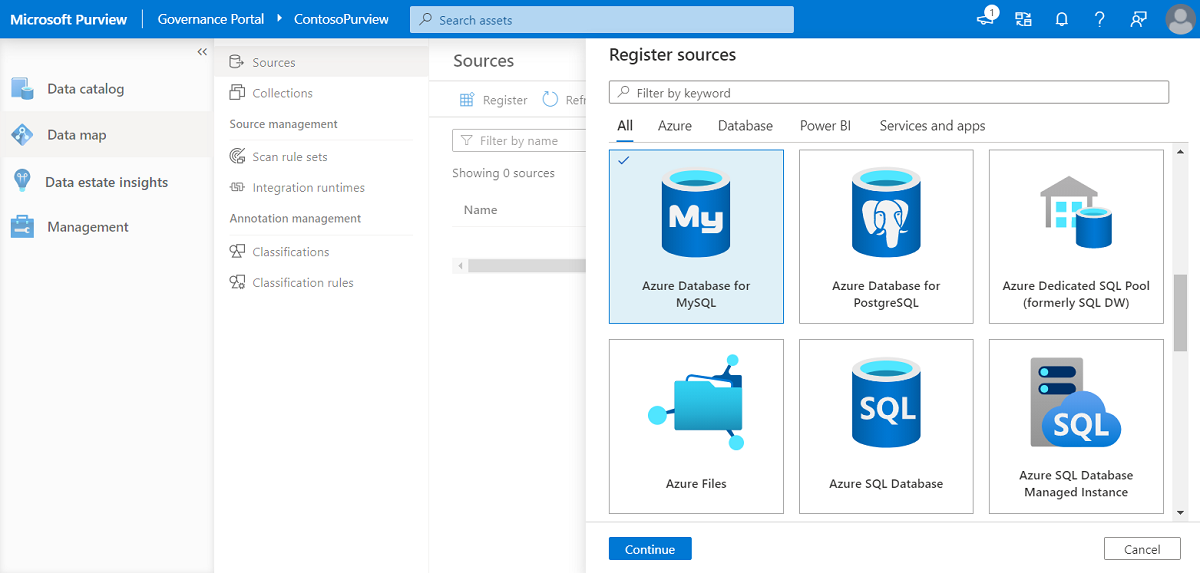
On the Register sources (Azure Database for MySQL) screen, do the following:
- Enter a Name for your data source. This will be the display name for this data source in your Catalog.
- Select From Azure subscription, select the appropriate subscription from the Azure subscription drop-down box and the appropriate server from the Server name drop-down box.
- Select Register to register the data source.
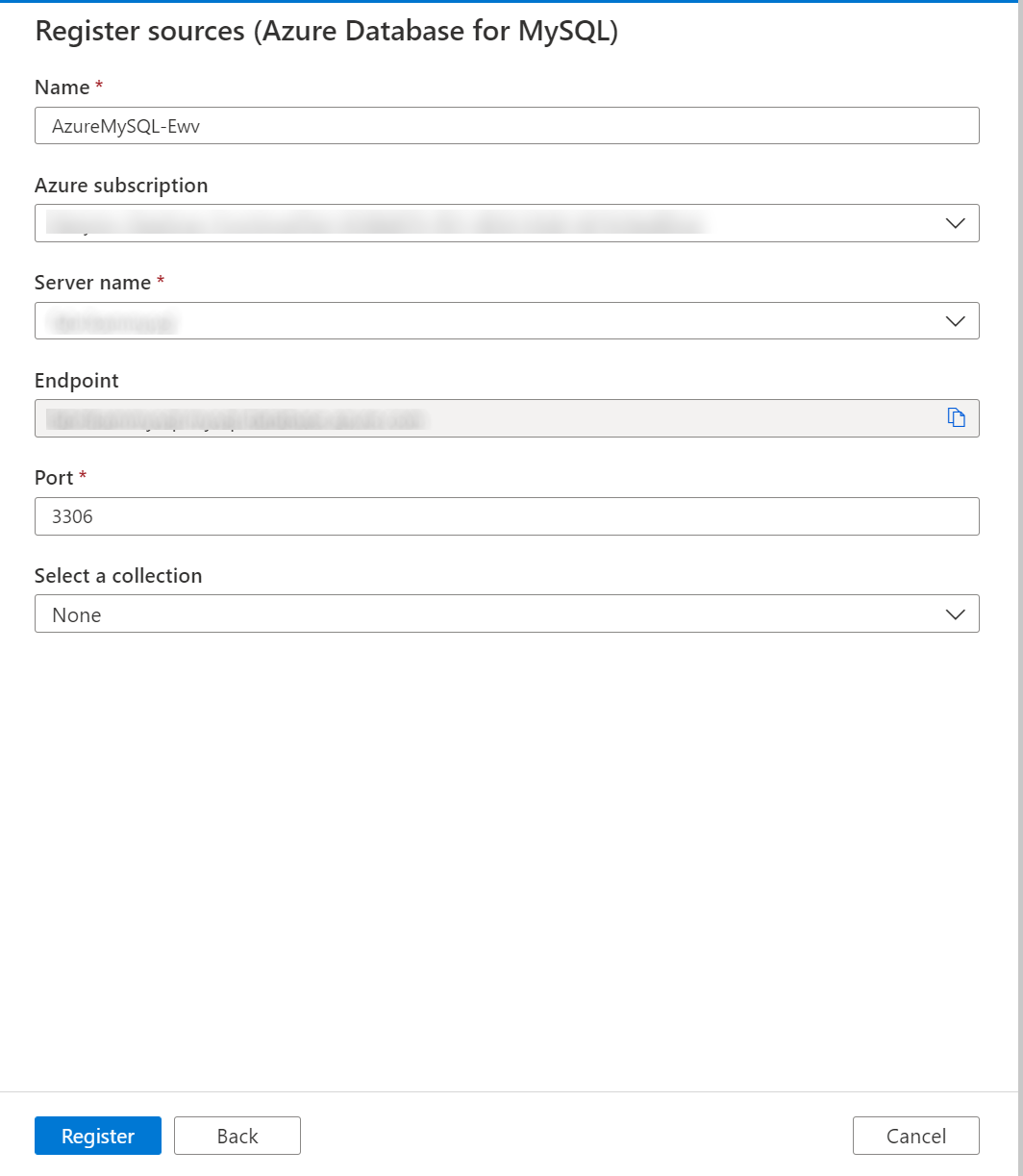
Scan
Follow the steps below to scan Azure Database for MySQL to automatically identify assets and classify your data. For more information about scanning in general, see our introduction to scans and ingestion
Create and run scan
To create and run a new scan, do the following:
Select the Data Map tab on the left pane in the Microsoft Purview governance portal.
Select the Azure Database for MySQL source that you registered.
Select New scan
Choose either the Azure integration runtime if your source is publicly accessible, a managed virtual network integration runtime if using a managed virtual network, or a self-hosted integration runtime if your source is in a private virtual network. For more information about which integration runtime to use, see the choose the right integration runtime configuration article.
Select the credential to connect to your data source and check your connection to make sure your credential is properly configured.
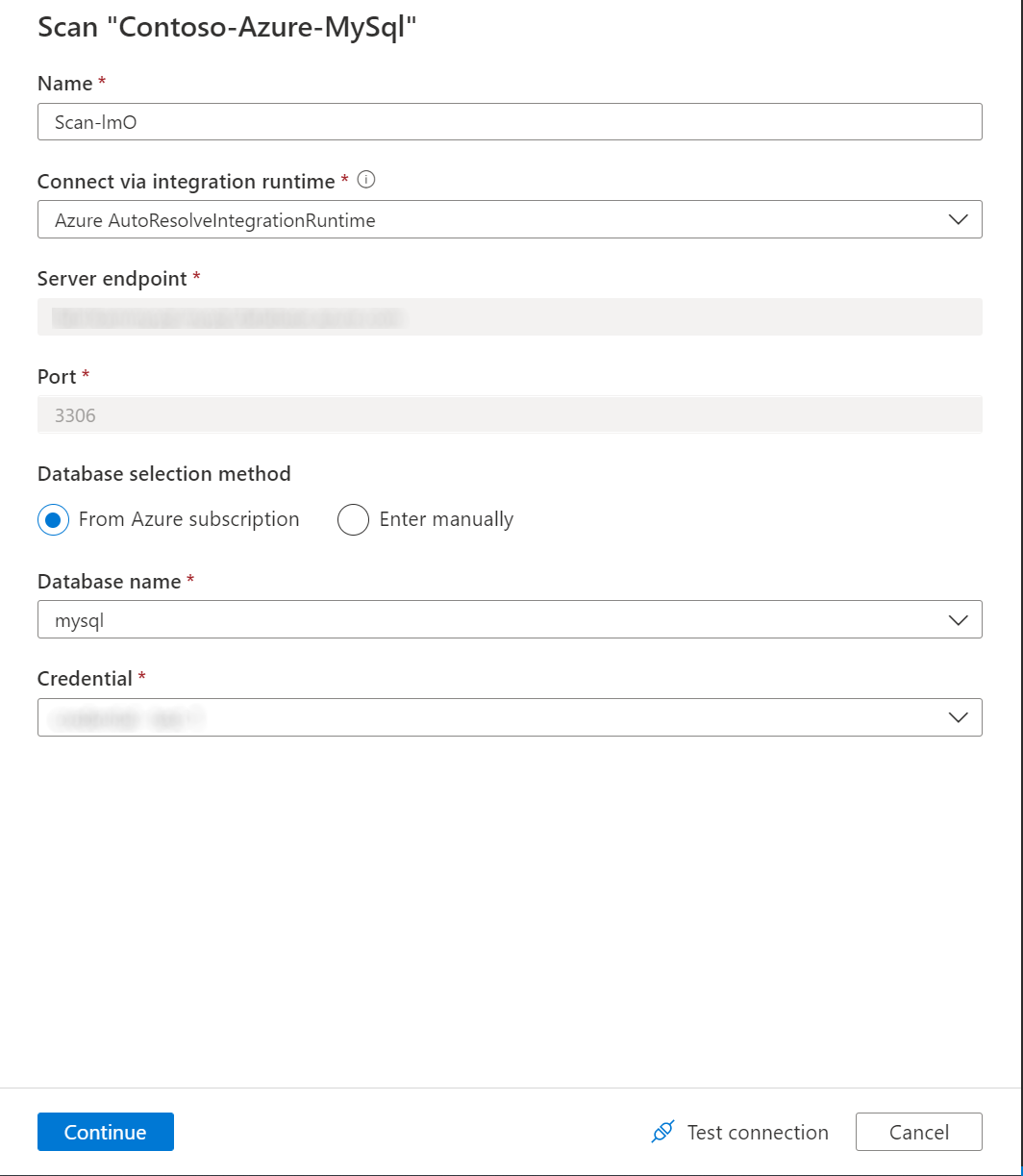
You can scope your scan to specific folders or subfolders by choosing the appropriate items in the list.
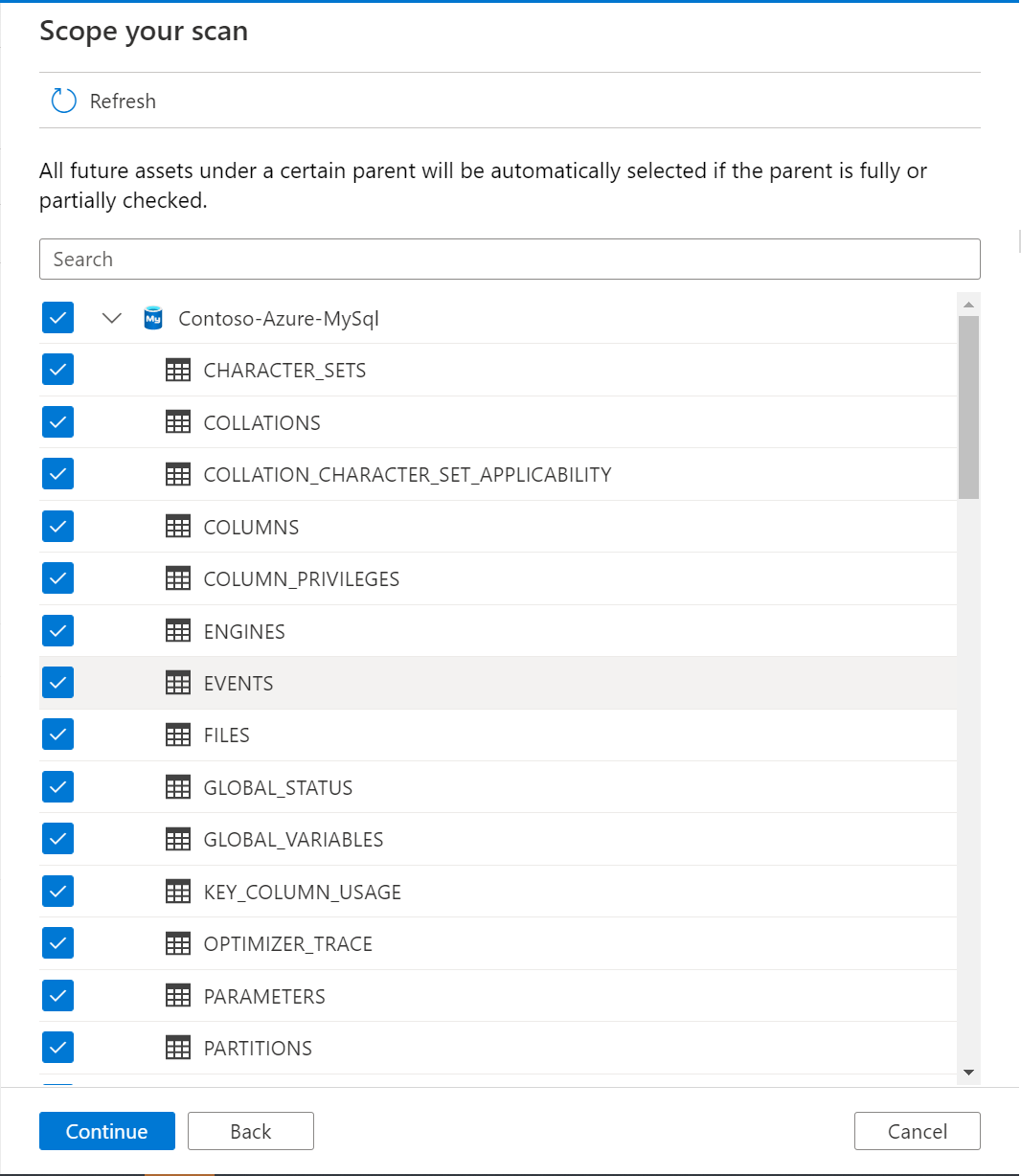
Then select a scan rule set. You can choose between the system default, existing custom rule sets, or create a new rule set inline.
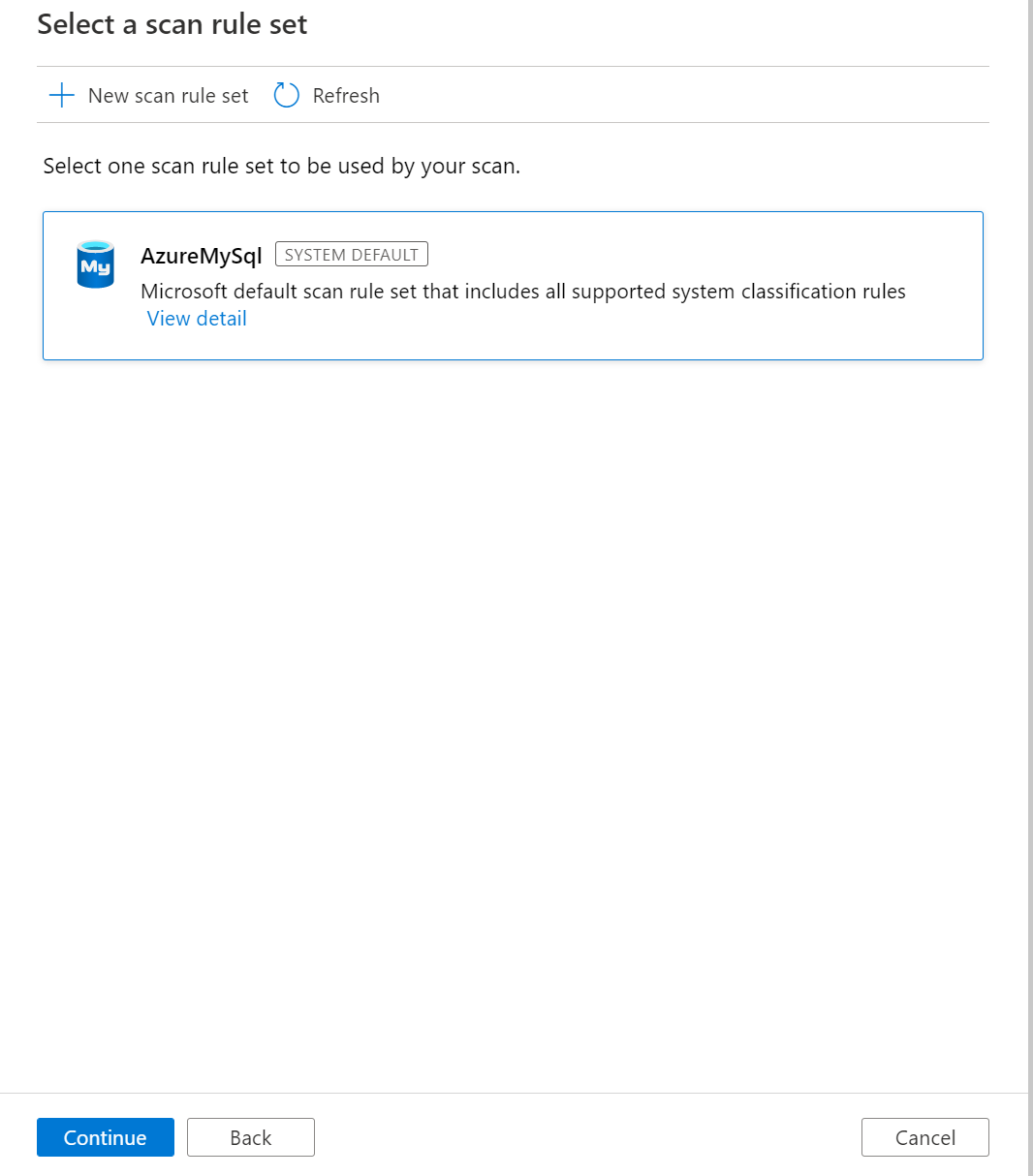
Choose your scan trigger. You can set up a schedule or run the scan once.
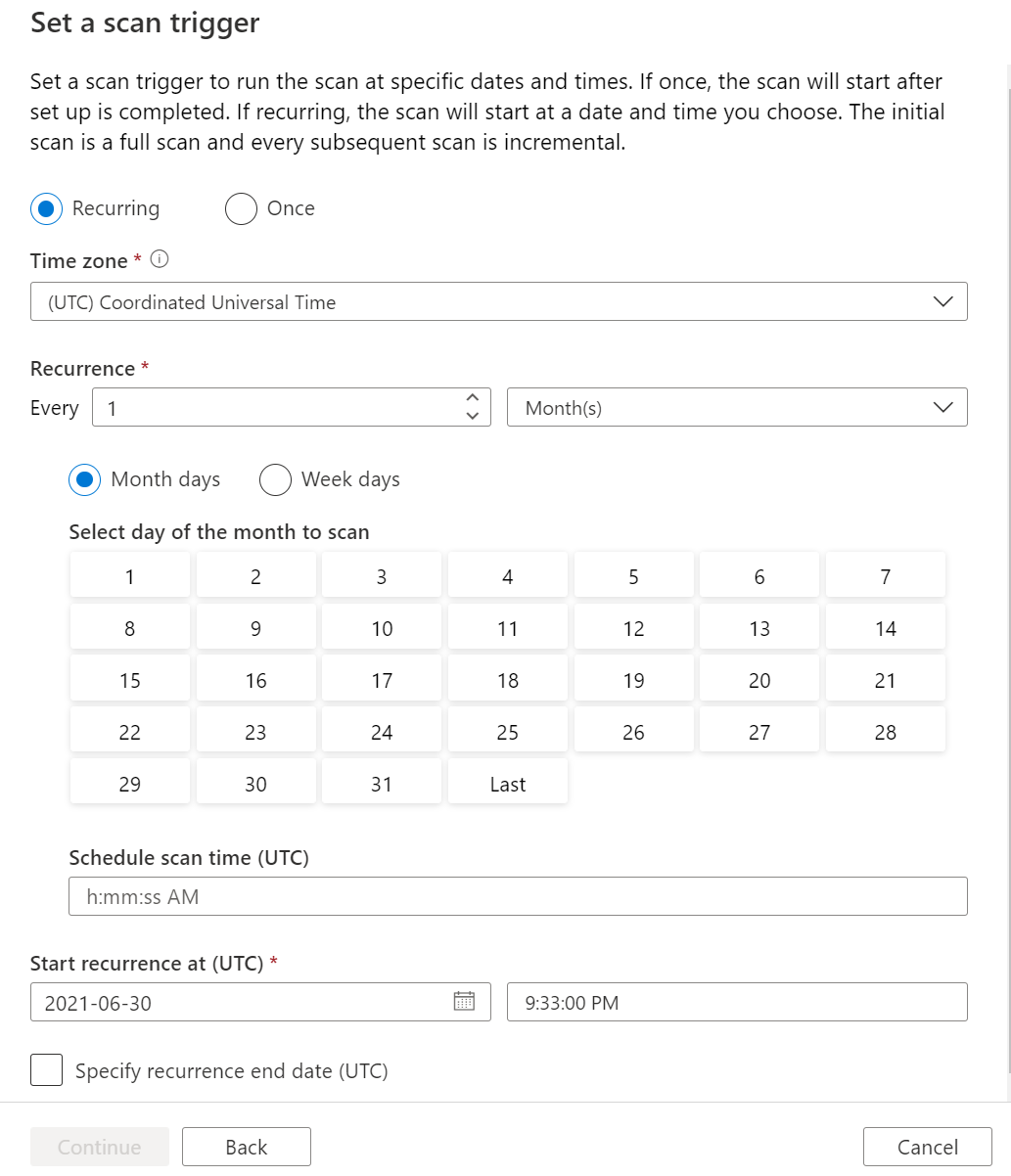
Review your scan and select Save and run.-->
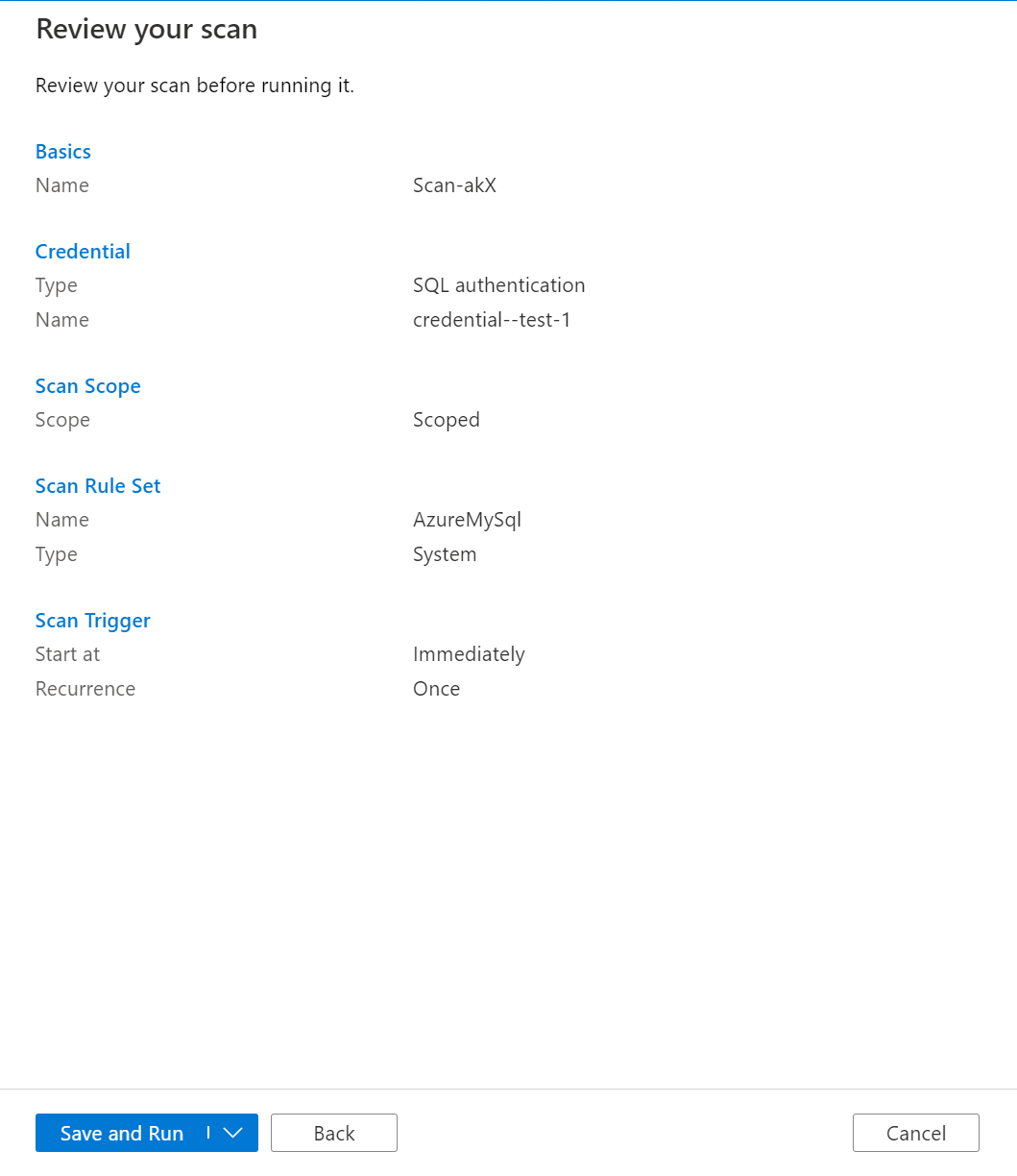
View your scans and scan runs
To view existing scans:
- Go to the Microsoft Purview portal. On the left pane, select Data map.
- Select the data source. You can view a list of existing scans on that data source under Recent scans, or you can view all scans on the Scans tab.
- Select the scan that has results you want to view. The pane shows you all the previous scan runs, along with the status and metrics for each scan run.
- Select the run ID to check the scan run details.
Manage your scans
To edit, cancel, or delete a scan:
Go to the Microsoft Purview portal. On the left pane, select Data Map.
Select the data source. You can view a list of existing scans on that data source under Recent scans, or you can view all scans on the Scans tab.
Select the scan that you want to manage. You can then:
- Edit the scan by selecting Edit scan.
- Cancel an in-progress scan by selecting Cancel scan run.
- Delete your scan by selecting Delete scan.
Note
- Deleting your scan does not delete catalog assets created from previous scans.
Next steps
Now that you've registered your source, follow the below guides to learn more about Microsoft Purview and your data.